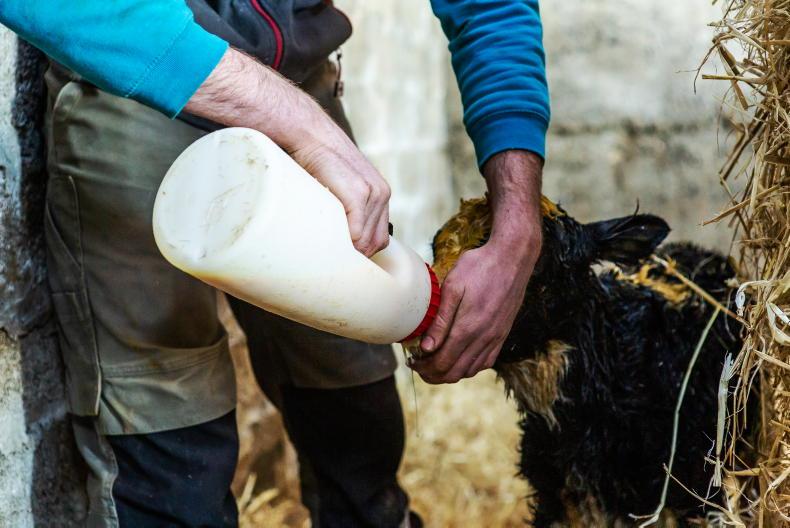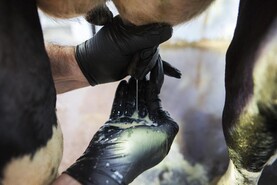“Colostrum is gold”, has become a coined phrase in recent years, especially in an era of increased emphasis on animal health and welfare, while reducing antibiotics.
Calves and lambs are born with a naive immune system and no antibodies, so successful passive immunity from colostrum is crucial and is known to increase weight gains, reduce disease risk, improve fertility and, in dairy calves, lead to higher milk yields.
Failure of passive transfer (FTP) is when the blood immunoglobulin G (IgG) level of a calf/lamb is less than 10mg/ml. A calf with FTP is 1.5 times more likely to scour, 1.8 times more likely to have pneumonia and is twice as likely to die.
There are three Qs when it comes to successful passive immunity:
Quantity: A calf should receive at least 3l of good-quality colostrum at birth or 10% of bodyweight. Lambs should receive 200ml of good-quality colostrum in the first 2hr. Quickly: From the time of birth, a calf and lamb’s ability to absorb colostrum rapidly reduces, with a greater decline after 6hr of age and there is minimal absorption from 24hr old. The antibody concentration within colostrum also declines quickly with time.Quality: Colostrum should contain at least 50g/l of IgG. Quality can be measured quickly and efficiently on-farm, by using a colostrometer or a BRIX refractometer. Many factors can affect quality – the dam’s nutritional status and body condition score are the most important, but others include age, breed and parity. FTP is usually suspected when there is a greater disease incidence, with poor recovery rates and increased mortality rates observed.
If you have concerns, speak to your vet about colostrum quality testing, blood sampling calves/lambs to check for FTP and to discuss your colostrum management.
*Christa McMordie is a veterinary surgeon at Lisnafillan farm vets in Ballymena.
Read more
A farmer’s relief at the first latch-on
Curing common calf problems
“Colostrum is gold”, has become a coined phrase in recent years, especially in an era of increased emphasis on animal health and welfare, while reducing antibiotics.
Calves and lambs are born with a naive immune system and no antibodies, so successful passive immunity from colostrum is crucial and is known to increase weight gains, reduce disease risk, improve fertility and, in dairy calves, lead to higher milk yields.
Failure of passive transfer (FTP) is when the blood immunoglobulin G (IgG) level of a calf/lamb is less than 10mg/ml. A calf with FTP is 1.5 times more likely to scour, 1.8 times more likely to have pneumonia and is twice as likely to die.
There are three Qs when it comes to successful passive immunity:
Quantity: A calf should receive at least 3l of good-quality colostrum at birth or 10% of bodyweight. Lambs should receive 200ml of good-quality colostrum in the first 2hr. Quickly: From the time of birth, a calf and lamb’s ability to absorb colostrum rapidly reduces, with a greater decline after 6hr of age and there is minimal absorption from 24hr old. The antibody concentration within colostrum also declines quickly with time.Quality: Colostrum should contain at least 50g/l of IgG. Quality can be measured quickly and efficiently on-farm, by using a colostrometer or a BRIX refractometer. Many factors can affect quality – the dam’s nutritional status and body condition score are the most important, but others include age, breed and parity. FTP is usually suspected when there is a greater disease incidence, with poor recovery rates and increased mortality rates observed.
If you have concerns, speak to your vet about colostrum quality testing, blood sampling calves/lambs to check for FTP and to discuss your colostrum management.
*Christa McMordie is a veterinary surgeon at Lisnafillan farm vets in Ballymena.
Read more
A farmer’s relief at the first latch-on
Curing common calf problems






 This is a subscriber-only article
This is a subscriber-only article










SHARING OPTIONS: